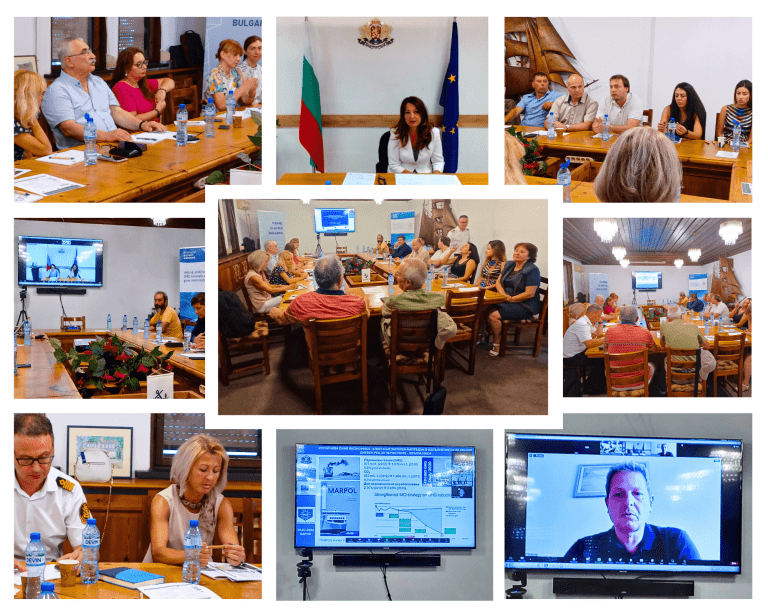On 29 July 2024, the coastal Black Sea city of Varna hosted the national event on "Sustainable and Resilient Blue Economy – a key to enhanced CMA progress" organised by the Ministry of Transport and Communications of Bulgaria - National Coordinator of the Common Maritime Agenda for the Black Sea (CMA) and the Marine Cluster Bulgaria - Bulgarian National Hub of the Black Sea Assistance Mechanism (BSAM).
The event was part of the initiative ‘CMA in My Country’ and was supported by the BSAM, the Enterprise Europe Network and the Bulgarian Chamber of Shipping. The round table aimed to facilitate dialogue on the sustainability of Bulgaria's maritime transport in relation to the implementation of the CMA, identifying barriers and propose solutions, prioritising factors that impact Bulgaria’s progress in enhancing business resilience. Additionally, the event explored ways to unlock Bulgaria’s potential to benefit from the EU’s ‘Sustainable Blue Economy Partnership’ initiative under the Black Sea SRIA.
The event, moderated by Marine Cluster Bulgaria, gathered 25 participants from the maritime sector, including national authorities, business representatives, NGO’s, academia, local and regional policy decision-makers, media, lawyers, and representatives of regional networks. Mrs. Anna Mihneva-Natova, Deputy Minister of Transport and Communications of Bulgaria, opened the event by underscoring the significance of collaborative efforts like the CMA in fostering cooperation and an innovation-friendly environment for the Blue Economy.
Discussions centred around the implementation of EU Regulation on Alternative Fuel Infrastructure and the EU Emissions Trading System (ETS) for maritime transport. Participants explored the opportunities for Bulgaria to join the EU "Sustainable Blue Economy Partnership" (SBEP) initiative.
Participants expressed their concerns and ideas about these issues., The Bulgarian Ministry of Transport and Communications outlined the regulatory framework and future actions necessary for transitioning to alternative energy sources in maritime transport. It highlighted progress in infrastructure planning at Bulgarian ports and announced the development of a new National Policy Framework for alternative fuels in the transport sector. The subject of the potential economic impact of the ETS on EU maritime transport was also raised and participants stressed the need for clarity and transparency in the allocation of ETS revenues.
There was also a presentation of research on maritime traffic in Bulgaria's exclusive economic zone, emphasising the need for regional analysis to designate the Black Sea as an emission control area. The Bulgarian contact for the SBEP presented the barriers and opportunities for Bulgaria to join international blue economy partnerships, highlighting the importance of securing national funding.
During a round-table discussion, participants emphasised the need to nationally assess how the relevant EU legislation might impact the Bulgarian maritime transport’s sector and the broader blue economy of the country. This analysis will be delivered to the CMA National Coordinator for consideration. Bulgaria's potential accession to the SBEP was also highlighted as a mean to share knowledge and optimise research and development funding in blue economy sectors. The event concluded with a call for a holistic approach to Bulgaria's blue economy sectors, aiming to foster a sustainable blue economy.

